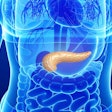
A new commission from Lancet Oncology, the European Groundshot Commission, issued a report on Wednesday entitled “European Groundshot — addressing Europe’s cancer research challenges,” in which it examines the current landscape of European cancer research and care, making recommendations for overcoming the unprecedented challenges the European cancer research community has faced in recent years.
The commission said in the report that it seeks to inform Europe’s Beating Cancer Plan and the E.U. Cancer Mission, calling for a patient-centered and evidence-based approach to cancer research and treatment in meeting a “70:35” target: 70% average survival for all European cancer patients by 2035.
In its report, the commission identified gaps in European cancer research and made specific recommendations to bridge those gaps. The report calls for prioritization of research on prevention and early diagnosis, treatment modalities such as surgery and radiotherapy, gender equality, and survivorship after diagnosis and treatment, all of which are areas of cancer research that the commission said have been underserved while discovery science and biopharmaceutical research have been at the forefront.
The European Groundshot Commission stressed that greater focus on cancer prevention is particularly needed; as the commission pointed out, reducing the number of people who develop cancer would ensure resources are available for those who do require treatment.
In the report, the group sounded a warning about the present and potential consequences of the setbacks in cancer care and research that have occurred as a result of recent events such as the COVID-19 pandemic.
Responses to the global health crisis precipitated by the emergence of the SARS-CoV-2 virus exposed vulnerabilities and shortcomings in research and health systems throughout the world. European cancer research and treatment systems were no exception: the commission analyzed data from the first year of the pandemic and determined that clinicians saw 1.5 million fewer patients with cancer during that period, with one in two patients having surgery or chemotherapy delayed. Furthermore, an estimated 100 million cancer screening tests were missed; as a result, the report says, an estimated one million cancer diagnoses may have been missed.
While a pandemic would be directly expected to cause problems for cancer research and treatment, sociopolitical events have also had significant effects. The commission found that Brexit, the withdrawal of the U.K. from the European Union, caused a significant decline in European research activity. Russia’s invasion of Ukraine also has serious ramifications for European cancer research: both countries have been among the most active contributors to clinical cancer research, especially industry-sponsored research. In the report, the commission calls for specific steps to be taken to mitigate the effects of both events on European cancer research.
The commission’s report also identified long-term gaps for the research community to address. The data analysis showed that investment in cancer research in Europe during the previous decade fell far short of comparable research funding in the U.S.; in the report, the commission called for a doubling of the per-capita spending in the European cancer research budget by 2030 to address this gap.
Gender inequity in the European research community was also addressed in the report, with the commission noting that senior female authors make up less than one-third of all authors in the European countries contributing the most cancer research.
Above all, the authors of the report authors emphasize the need for the E.U. to prioritize data in cancer research to deliver better, more equitable, and more affordable cancer care, stating that patients treated in research-active hospitals were more likely to have better outcomes.
“Gathering data and turning them into cancer intelligence has been our North Star in this [c]ommission,” Mark Lawler, the lead author of the report, said in a statement. “Too often, opinion, even expert opinion, has trumped data in the genesis and implementation of cancer research policies. Simply continuing to dedicate resource and effort to a narrow research agenda is no longer desirable or viable: we must follow the data and act on what they reveal. We have an unrivaled opportunity to reimagine cancer research and its implementation so as to achieve our ambitious 70:35 Vision, an average of 70% 10-year survival for patients treated for cancer in Europe by 2035. Let’s grasp this opportunity.”



















